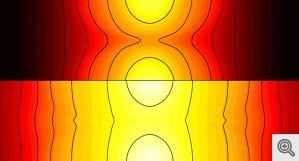Two thirds of the crops humans use for food production and the majority of wild plant species depend on pollination by insects such as bees and hover-flies.
This ecosystem service, however, provided by nature to humans for free, is increasingly failing. As an example, after 3000 years of sustainable agriculture, farmers in the Chinese province Sichuan have to pollinate apple flowers themselves by using pollination sticks — brushes made of chicken feathers and cigarette filter. This is one small example of a problem occurring world-wide, including Europe.
The work has been carried out in part part by STEP, an EU-funded Framework program Seven (FP7) project.
A global survey of several studies demonstrated a severe decline of pollinators and provision of pollination services in a wide range of intensively managed temperate and tropical agroecosystems. Considering that global crop production worth 153 billion Euros (for Europe 22 billion Euros) relies on insect pollination, the pollinators’ decline has direct impact on the stability of food production and consumer prices, and might also have serious consequences for human health.
A decrease of fruit and vegetable availability could impact the health of consumers worldwide. The World Health Organisation (WHO) has set a lower limit of 400 grams per capita per day for fruit and vegetable consumption. Some studies demonstrated than even now more than 50% of the European households fall below this recommendation. In the case of pollinator declines and increasing food prices, this situation is very likely to worsen.
via Science Daily
The Latest Streaming News: Decline of Pollinators updated minute-by-minute
Bookmark this page and come back often
Latest NEWS
Latest VIDEO










